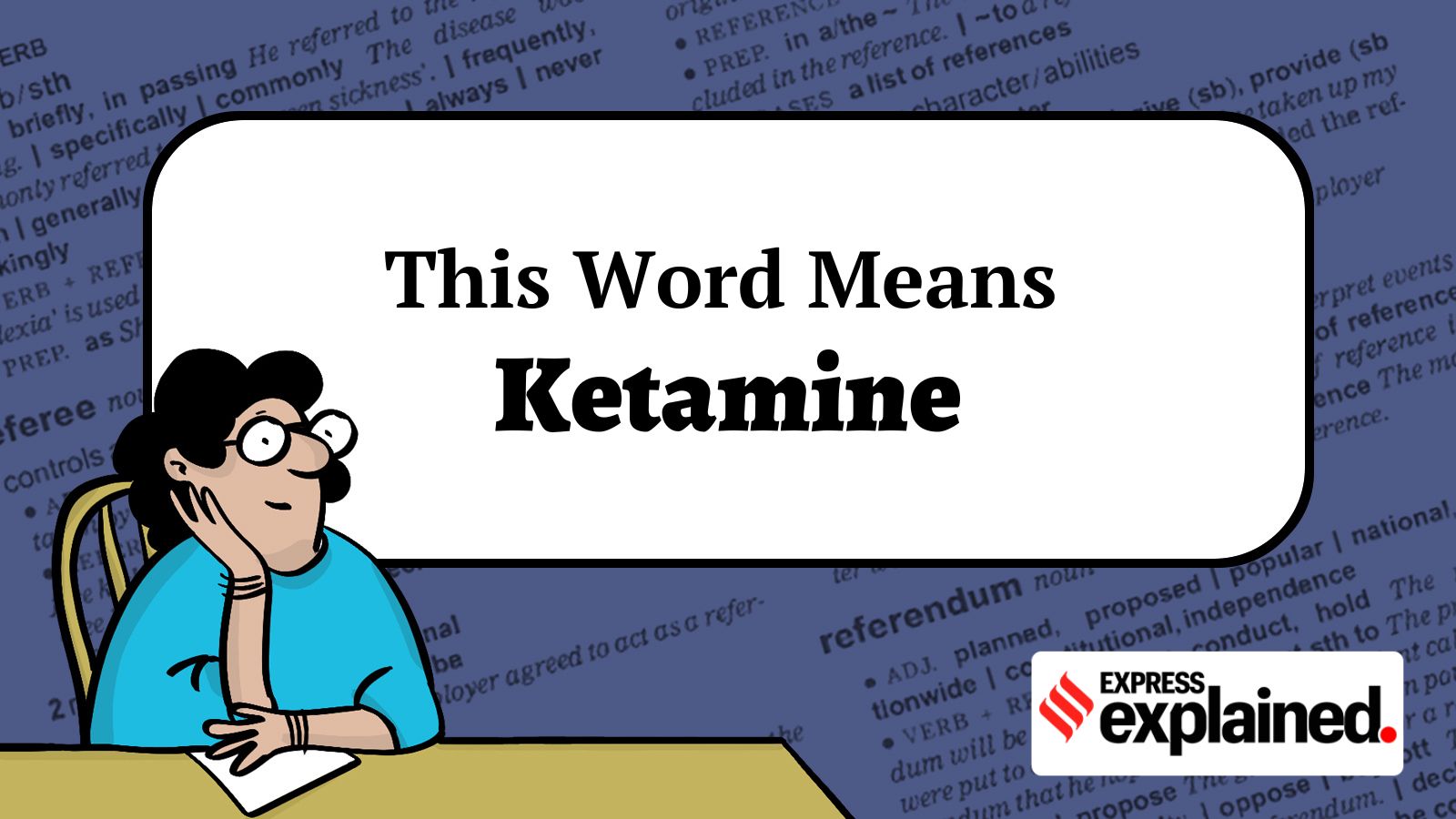This word means: Ketamine
Every day, 500 words on a word (or expression) that has appeared in The Indian Express
 In the US, ketamine was first used as an anaesthetic for animals in the 1960s
In the US, ketamine was first used as an anaesthetic for animals in the 1960sWHY NOW?
Billionaire Elon Musk engaged in extensive drug consumption as he became one of Donald Trump’s closest advisers, taking ketamine so frequently it caused bladder problems and traveling with a daily supply of approximately 20 pills, according to a report by the New York Times.
Musk had previously said that he was prescribed ketamine for depression, taking it about every two weeks.
WHAT IS KETAMINE?
Ketamine is an anaesthetic that has been listed as a hallucinogen by the US Drug Enforcement Administration. It is referred to as a “dissociative anaesthetic hallucinogen” because it creates a feeling of detachment from pain and the environment.
In the US, ketamine was first used as an anaesthetic for animals in the 1960s. Around a decade later, the US Food and Drug Administration approved it for humans.
The drug’s use for treating depression and other mental illnesses is recent. Owing to its powerful effects, ketamine is consumed by those patients who haven’t responded to traditional therapies. Ketamine is also used as a recreational drug, popularly known as K or Special K among clubgoers.
HOW IS KETAMINE CONSUMED?
Mental illness patients usually take ketamine through an IV, nasal spray or tablet once or twice a week for six to eight weeks (some might need it for longer). When it comes to recreational purposes, it is consumed by snorting a white crystalline powder. Ketamine can also be injected or smoked.
WHAT ARE THE EFFECTS OF KETAMINE?
In a recent report, The New York Times talked to 40 ketamine patients, many of whom said the drug was like a reset button for the brain.
“During treatment sessions, they experienced pleasant visualisations, sometimes accompanied by a sense of existing outside themselves and melding with the universe. Afterwards, their daily problems seemed less weighty,” according to the report.
It also noted that ketamine garnered popularity as it affects brain receptors that traditional antidepressants do not target. “The psychedelic-like trip, many believe, is integral to the drug’s therapeutic effect,” the report said.
If taken in high doses, the anaesthetic quality of ketamine becomes more pronounced. Some may find it difficult to move and may feel numb, and can experience more graphic hallucinations. “This is sometimes called the ‘k-hole’ by users,” according to The Guardian.
IS IT SAFE TO CONSUME KETAMINE?
It’s hard to say. Some doctors have emphasised that if taken only for medicinal purposes and in the right doses, ketamine is safe to consume and very effective in treating mental illnesses.
However, many patients quoted in the NYT report said the drug can be addictive and, when taken chronically in high doses, can cause severe bladder damage. “There are indications that abuse may also lead to cognitive impairment,” according to the report.
Moreover, there has not been much research on prolonged ketamine treatment to determine if it’s safe or not. There is also a lack of literature on addiction and abuse among medical users.
- 01
- 02
- 03
- 04
- 05





































